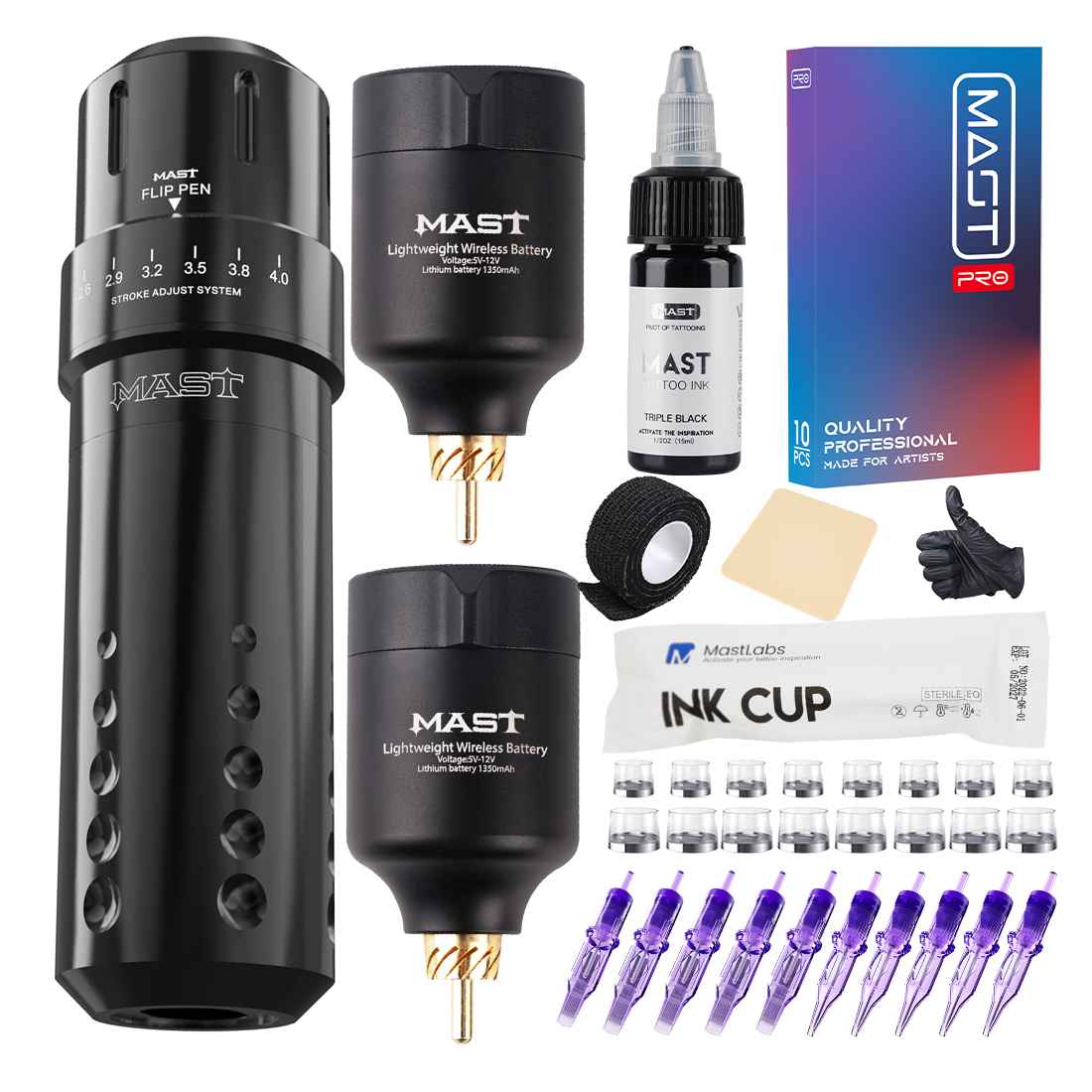Today, we will explore the question, “Can you have tattoos as a teacher?” The straight forward answer is, yes, you can have tattoos as a teacher.
You should note that teachers with tattoos face outdated assumptions about professionalism, role modeling and appropriateness. Yet personal expression rights are advancing in schools nationwide.
With discretion, most educators now succeed in displaying body art while maintaining student rapport and parental trust. Beyond mere policy adherence, inclusive principles ensuring equal treatment regardless of image benefit learning.
Overview of Teacher Tattoos
– No federal laws prohibit teachers from having visible tattoos or piercings in public schools. Some state and district policies persist.
– Private schools and religious institutions set autonomy over teacher dress codes, often skewing conservative.
– Perception challenges from parents over teachers “setting an example” for students remain obstacles.
– Appropriate tattoo themes, sizes and visibility levels allow expression while respecting school values. Teachers thoughtfully manage appropriateness.
– Strong teaching, leadership and communication skills eclipse outdated biases.
– Administrators should update policies supporting diversity and self-determination as social norms modernize.
With care and wisdom, most tattooed educators now successfully balance personal freedom and decorum.
Also Read: Can Nuns Have Tattoos? When Faith Meets Ink
Public School Tattoo Policies for Teachers
Public school tattoo policies are relaxing:
– Only two states – Hawaii and Kansas – still prohibit teacher visible tattoos. Even these bans get challenged for free speech violations.
– Most statewide departments of education provide loose tattoo and piercing guidelines, leaving dress code specifics to individual districts.
– Urban districts tend toward greater leniency as tattoos gain mainstream acceptance, especially in poorer, diverse communities.
– Wealthy suburban districts skew more conservative under parental pressures. Yet outright bans are fading here as well.
– Under First Amendment rights, courts increasingly overturn public school tattoo prohibitions as unconstitutional.
Barring extreme cases, teachers’ personal expression rights ultimately prevail over outdated public school prohibitions.
Private School Tattoo Policies
Private school tattoo bans persist more commonly:
– As private entities, faith-based and elite academies legally retain autonomy over staff dress codes and moral policies.
– Concerns over “appropriateness” and institutional images allow near-total tattoo prohibitions in employee agreements.
– Some teachers successfully contest restrictions through labor boards in states protecting off-duty conduct, but private schools largely prevail.
– Lawsuits alleging discrimination against protected classes like religion or race may override bans if raised.
– Alumni and student objections help reform overly repressive policies gradually.
Private school tattoo bans, while legally enforceable, risk driving away talented teaching candidates over superficial issues. Administrators should reconsider necessity and equity of rules.
Also Read: Can a Real Estate Agent Have Tattoos? [Unmasking the Truth]
Parental Perceptions of Teacher Tattoos
– Conservative parents often balk at visible tattoos on teachers as inappropriate exposure for children and undermining role model expectations.
– However, among younger and progressive parents, teacher tattoos raise little concern assuming content stays school-appropriate.
– Parents care far more about teacher capabilities and student rapport than appearance biases. Skilled tattooed teachers earn trust.
– Administrators address isolated parental complaints calmly, focusing on the teacher’s merits and insulation of instruction from personal style.
– Some teachers leverage tattoos to build rapport with teens, abused children, or at-risk groups who feel marginalized.
Quality experiences for students eclipse antiquated image expectations. Parental unease fades upon proven excellence.
Appropriate Teacher Tattoos – Themes and Placement
Teachers with tattoos heed:
– Avoiding themes of violence, profanity, drugs, intolerance, or sexual content
– Keeping tattoos coverable if significantly large, distracting, or contentious
– Placing tattoos discretely on less visible areas like upper arms, back and torso
– Selecting uplifting, inoffensive symbols and illustrations
– Using content tied to their subject matter for instructional relevance
– Refraining from facial tattoos, which remain taboo for authority roles
– Removing potentially gang affiliated hand tattoos to avoid misperceptions
With sound judgment, teachers thoughtfully display body art respecting school values.
Also Read: Can Architects Have Tattoos? It’s Not Black & White!
Handling Parent or Student Tattoo Concerns
If faced with tattoo criticisms, teachers can respond:
– Politely explaining tattoo significance or symbolism if appropriate. Redirect to your dedication.
– Affirming your commitment to upholding school standards of decorum regardless of self-expression.
– Noting administrative and parental satisfaction with your proven teaching excellence over appearance.
– Avoiding further discussion of your off-duty style choices and redirecting focus to student progress.
– Privately consulting administrators for guidance diffusing misunderstandings according to district policies.
– Suggesting a meeting to clear the air and strengthen mutual understanding.
– Seeking union guidance if continually harassed beyond stated policies.
Professionalism and performance take priority over uninformed judgments.
Best Practices for Teachers with Tattoos
Succeeding as an educator with visible tattoos involves:
– Keeping all interactions student-focused, not fixating on tattoos or personal style.
– Establishing yourself as an accomplished professional before adopting a distinctive look.
– Speaking and dressing otherwise conservatively to accentuate your seriousness and capabilities.
– Avoiding staff resistance by moderating your tattoos early in a new position before proving yourself.
– Remaining aware that unfair biases against teacher tattoos disproportionately impact women and minorities.
– Advocating tactfully for updated teacher diversity and expression policies alongside admin.
– Emphasizing your enthusiasm, competence and connections over appearance.
A reasonable, gradual approach builds confidence in your excellence as an educator.
Also Read: Tats and Titles: Can a President Have Tattoos?
Discrimination Protections for Tattooed Teachers
Teachers facing unfair tattoos restrictions have some legal protections:
– Bans applied unequally against protected classes like race, gender or religion are unlawful nationally.
– State labor laws sometimes protect lawful off-duty activities, including tattoos for public teachers. Significant hurdles exist for wrongful termination claims.
– ADA and religious rights require reasonable accommodations for tattoos related to disabilities or sincere beliefs.
– Union membership provides guidance and advocacy against arbitrary administration restrictions.
– Private school teachers have very few protections beyond any stated agreements or faculty handbook rights.
Teachers should document issues thoroughly and consult attorneys if experiencing discrimination based on tattoos unrelated to reasonable job duties. Legal assistance accessing rights is key.
Building an Inclusive School Culture
To support diverse teachers, administrators can:
– Review whether tattoo and piercing policies remain truly necessary or unnecessarily restrictive.
– Survey staff and community perceptions to guide appropriate modernization of outdated policies.
– Train hiring teams against unconscious biases against teacher candidates with non-traditional appearance.
– Focus teacher observation, reviews and discipline on conduct and effectiveness over personal expression.
– Intervene against bullying, gossip, or microaggressions from colleagues over teacher tattoos.
– Celebrate faculty for their passions and interests beyond school walls.
– Welcome diverse staff who represent student communities and model self-determination.
Valuing professionals’ abilities over appearance creates an empowering school community.
Advice for Aspiring Tattooed Teachers
Those with body art pursue opportunities through:
– Checking state and district policies before applying to avoid surprise restrictions. Seek welcoming districts.
– Limiting tattoos early in candidacy until establishing a solid reputation first. Then thoughtfully expand self-expression.
– Presenting and interviewing with utmost professionalism to highlight your qualifications.
– Practicing thoughtful responses to tattoo concerns without getting defensive. Kill them with kindness and skill.
– Considering specialty school environments such as charters, disciplines like arts that welcome creativity, and demographics you identify with.
– Working as a highly effective paraprofessional or aide first to acclimate staff to your tattoos.
With resilience and care, tattooed teachers find fulfilling education roles where they can fully contribute.
Conclusion
We’ve explored the question, “Can you have tattoos as a teacher?” We’ve seen that while teacher tattoo bans linger outdatedly in some environments, most educators now freely express themselves without facing restrictions or judgement over body art.
By focusing on student needs, capabilities, and school community values, skilled tattooed teachers thrive through strong communication, discreet personal choices, and championing modernization.
As mindsets progress, restrictions face replacement by inclusive policies concentrated on equality, ethics and empathy. Regardless of appearance, excellent educators remain defined solely by their character, dedication and ability to guide learners.
FAQs on Can You Have Tattoos as a Teacher
Can teachers have full sleeve arm tattoos?
Most districts allow sleeve tattoos assuming content remains school appropriate. However, some require immediately coverable long sleeve clothing in class. Sleeve policies are relaxing as views shift.
Do teachers have to cover finger tattoos?
Small finger tattoos may be permitted, but some parents balk at prominent hand tattoos teachers use while interacting physically with kids. Visible hand tattoos often still require coverage when teaching.
Can teachers show tattoos in religious schools?
Most religious primary schools heavily restrict teacher tattoos to align with denominational values. Religious secondary schools grant more individuality but expect appropriate themes.
Are teachers with tattoos judged as less intelligent?
Yes, studies show educators with prominent tattoos are often presumed less knowledgeable. Teachers must overcome stereotypes through strong skills and performance to gain respect.
Do urban schools allow teacher tattoos more than suburban ones?
Yes, urban districts serving high-needs diverse communities tend to be more permissive as teachers’ tattoos reflect student cultures. Wealthy suburban parents push stricter rules.
Can teachers state First Amendment rights to protest tattoo bans?
Rarely successfully. Courts give public schools wide discretion controlling employee dress and speech when reasonably tied to educational missions.
Do school boards prohibit teacher facial piercings more than tattoos?
Generally yes, facial piercings face near universal bans outside of urban alternative environments. Even liberal districts restrict piercings under community standards requiring conservative teacher dress.
How do teachers explain controversial tattoos to students?
Carefully yet honestly if asked, but avoid imposing personal views. Redirect focus to classroom topics and ethical conduct over opinions on self-expression.
Are tattoos less acceptable on male versus female teachers?
Yes, research indicates parents feel tattoos undermine male teacher authority more while viewing tattooed women as attention-seeking. This reflects societal double standards.
Do inner-city teachers display tattoos openly?
Frequently yes, tattoos allow rapport and shared backgrounds with diverse urban students. Administrators prioritize cultural understanding over appearances.






